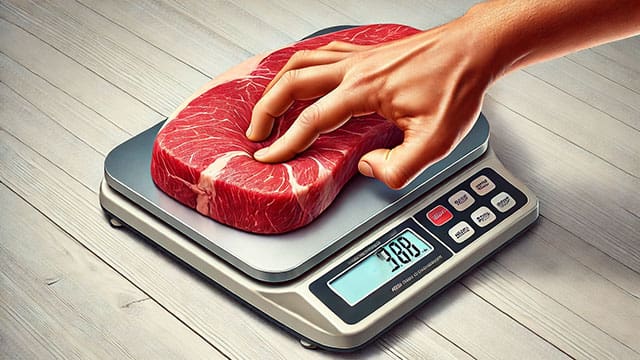New investigation reveals systemic weight mislabelling by grocers in meat products

For interview requests, click here
The bread price-fixing scandal investigation marks its 10th anniversary this year.
First exposed in 2015, the scandal revealed a decade-long scheme where major grocery chains and bakeries colluded to artificially inflate bread prices, costing Canadian consumers millions. While Loblaw, Weston Bakeries (since sold), and Canada Bread (now owned by Mexico’s Grupo Bimbo, which paid a record-breaking $50-million fine) have faced consequences, the Competition Bureau’s work remains incomplete.
Four major companies – Sobeys, Metro, Giant Tiger, and Walmart – are still under investigation. This extraordinary delay does little to restore consumer trust in the grocery industry.
Adding to public frustration, a recent CBC investigation led by reporter Sophia Harris uncovered another issue: overcharging customers by mislabelling the weight of meat products. Major chains such as Loblaw, Sobeys and Walmart were implicated. The investigation found that some stores included the weight of packaging in the labelled weight of meat, with discrepancies exceeding acceptable margins of error. In some cases, errors were over 10 per cent – significantly breaching regulatory standards designed to protect consumers.
 Mislabelling scandals and price-fixing schemes are damaging trust in Canada’s grocers. |
| Recommended |
| $500M settlement in bread price-fixing scandal outrageous
|
| Will your grocery bills spike in 2025?
|
| Think beef prices are high now?
|
Canada’s Maximum Allowable Deficiency for pre-packaged goods sets strict limits on acceptable errors. While small discrepancies are allowed – such as 1.5 per cent for packages under one kilogram – errors exceeding 10 per cent are a serious violation. These regulations exist to ensure fairness in food labelling and protect consumers from being overcharged, but the CBC’s investigation, spanning several months and more than 80 stores, revealed systemic lapses.
Grocers have attributed these issues to equipment malfunctions or human error, but the financial impact on consumers is undeniable. According to Canada’s Food Price Report 2025, meat prices are expected to rise by five to seven per cent this year. Canadians already spend an estimated 15 to 17 per cent of their food budgets on meat, totalling about $48 billion annually. With an average retail price of $8 per pound, consumers purchase approximately six billion pounds of meat each year. Even small labelling errors could translate into millions of dollars in overcharges, potentially exceeding the financial damage caused by the bread price-fixing scandal.
Most Canadians trust product labels, but recent revelations are shaking that confidence. If scales used for meat are inaccurate, can consumers trust the weight of other products like seafood, fruits and vegetables? Even extra lean ground beef, regulated to contain no more than 10 per cent fat by weight, could come under scrutiny. With beef prices rising by 15 per cent over the past year, these questions add to an already overwhelming sense of frustration for shoppers.
When consumer doubt spreads, trust erodes. Grocers, already under scrutiny for record profits during inflation, must act decisively to restore confidence. Transparency and accountability are no longer optional – they are essential.
For consumers, vigilance is key. A $15 home scale can empower individuals to verify labels, detect discrepancies and report any inaccuracies promptly to the Canadian Food Inspection Agency or Measurement Canada. Given the apparent gaps in regulatory enforcement, consumer-driven action may be the most effective way to hold the industry accountable.
Canada’s regulatory agencies must also step up. Despite repeated revelations of systemic failures, there has been little in the way of enhanced oversight or reforms. Stronger enforcement measures and proactive monitoring are necessary to protect consumers and ensure fairness in the marketplace.
In an era of rising food prices and fragile consumer trust, empowering Canadians to monitor and report inaccuracies is not just advisable – it’s essential. At the same time, grocers must go beyond apologies and take tangible steps to rebuild trust. Only then can they begin to repair their damaged reputations and ensure fairness in an industry that touches every Canadian household.
Dr. Sylvain Charlebois is a Canadian professor and researcher specializing in food distribution and policy. He is the senior director of the Agri-Food Analytics Lab at Dalhousie University and co-host of The Food Professor Podcast. The media frequently cites him for his insights on food prices, agricultural trends, and the global food supply chain.
Explore more on Food prices, Cost of living, Corruption
Troy Media is committed to empowering Canadian community news outlets by providing independent, insightful analysis and commentary. Our mission is to support local media in building an informed and engaged public by delivering reliable content that strengthens community connections, enriches national conversations, and helps Canadians learn from and understand each other better.
